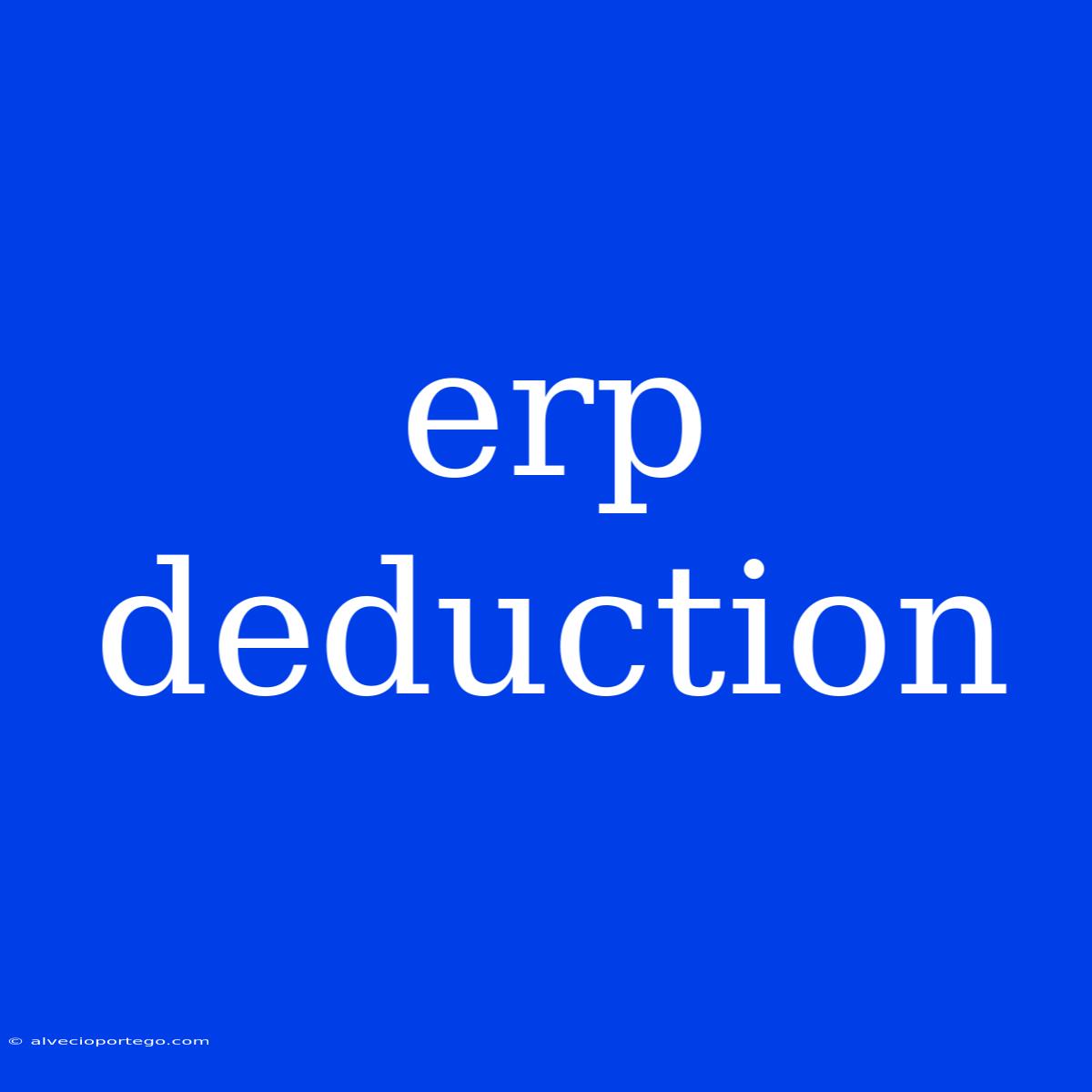Understanding ERP Deductions
ERP deductions, short for Enterprise Resource Planning deductions, refer to the various deductions made from an employee's salary as per the company's policies and legal requirements. These deductions are typically managed and processed through the company's ERP system.
Why are ERP deductions important?
- Compliance with laws: Deductions ensure compliance with legal obligations like taxes, social security contributions, and other mandatory payments.
- Payroll accuracy: Precisely calculating and deducting correct amounts ensure accurate payroll processing.
- Employee benefits: Deductions are often used to fund employee benefits like health insurance, retirement contributions, and other perks.
- Financial planning: Businesses rely on accurate deductions for financial planning and forecasting purposes.
Types of ERP deductions:
Here are some common types of deductions employers make:
1. Statutory Deductions:
- Income Tax: This is the primary tax deduction, calculated based on the employee's income and tax slab.
- Social Security Contributions: These are mandatory contributions for social security benefits like unemployment insurance, healthcare, and retirement.
- Professional Tax: This is a local tax levied by state governments in some countries.
- Employee Provident Fund (EPF): This is a mandatory retirement savings scheme, where a portion of the employee's salary is contributed to their retirement fund.
2. Voluntary Deductions:
- Provident Fund: This is a voluntary retirement savings scheme, where the employee contributes a certain percentage of their salary.
- Health Insurance: This covers medical expenses for the employee and their dependents.
- Life Insurance: This provides financial security for the employee's dependents in case of their death.
- Loan Repayments: These deductions are for repaying loans taken from the company or external sources.
- Other Benefits: This category can include deductions for employee welfare programs, gym memberships, etc.
ERP System Role in Deductions:
- Automated calculations: ERP systems streamline deduction calculations based on pre-defined rules and tax regulations.
- Automated processing: The system automatically generates pay slips and reports, ensuring accuracy and efficiency.
- Data security and privacy: ERP systems maintain secure employee data and ensure compliance with privacy regulations.
- Transparency and auditability: The system records all deductions and provides audit trails for compliance and regulatory purposes.
Conclusion:
ERP deductions are an integral part of payroll processing and ensure legal compliance, accurate financial planning, and employee benefits management. Implementing an efficient ERP system streamlines these processes, ensuring timely and accurate salary disbursements while minimizing errors.

